review



If one thinks about it, an editor’s letter is almost like a placebo. At the end of the day, these words, carefully hand-picked, will have no impact on your encounter with the following works. Yet we can and must still try. We ask that you consider swallowing.
The next pages are filled to the brim with the poetry, prose, and visual art of remarkable Claremont Colleges students. They explore the concept of placebo, chosen by our editorial team to capture the unreal-ness of what this second semester on campus has been for many of us. “A placebo (/pləˈsiːboʊ/ plə-SEE-boh) is a sham substance or treatment which is designed to have no known therapeutic value” (from Wikipedia, because we can). Art, like placebos, raises ethical concerns, deceives the spectator, but above all, elicits a response. We solicited pieces that lifted the veil between the real and the unreal, noted the thin line between science and superstition, confronted the truth-lie dichotomy, and considered what is necessity or luxury. Patrick Lewis’s “Prowl” guides the reader as a predator in a sleepy Michigan town in 1922. Jessica Yim painted a landscape of sweet addictions in “The Eyes Which See Reality”. Juliette Jeffers reflects on pain, the bodily existence, and the things we must do to get through the afternoon in “Daily Contortions”. In “mousetraps”, Jessica Wang delivers a poem that breaks down its very own form in dealing with cycles of insincerities and insanity. Readers are invited to appreciate anew what is strange in a normal grocery shopping trip in Valerie Braylovskiy’s “supermarket assimilation”.
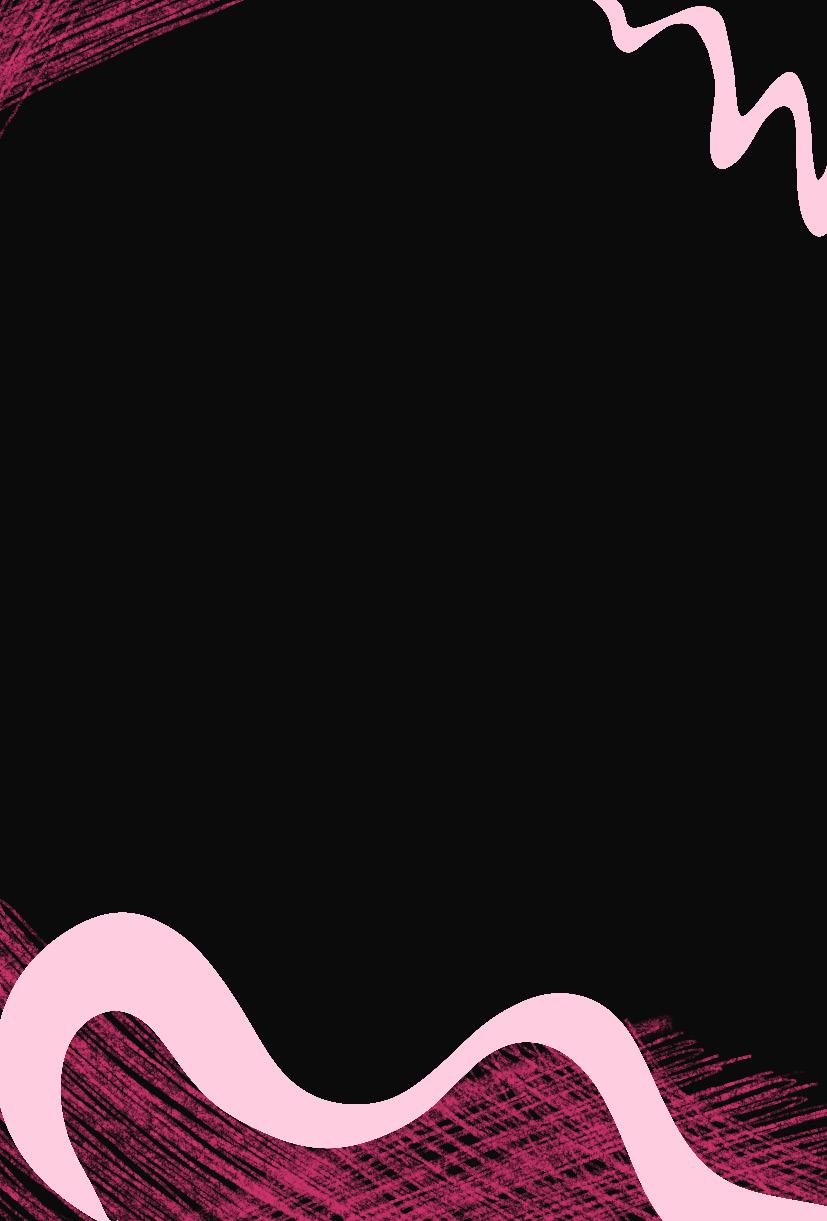
The Spring semester began with the Fall; at the Women’s Union, the launch of Issue 6, UNCANNY, was celebrated with an open mic and many a pastry. We had the pleasure to continue hosting several events this semester for the literary and arts community on the campuses, including a found poetry workshop in collaboration with EcoReps. Sunny Jeong-Eimer interviewed Pomona alum and UCLA professor Dr. Genevieve Carpio, and Carolyn Tung did the same with writer, playwright, and critic Sheila Heti. We tried harder on social media, kicking off a Staff Pick Saturday tradition we hope people are taking us up on. In April, it made for a wonderful platform to celebrate the month of poetry, with people from all over the consortium sharing lines that live inside their heads. We even made a staff Spotify playlist.
The seventh issue of Agave Review would not have been possible without the exemplary leadership of Becky Zhang, the tireless efforts of our editorial team, the creativity of layout designers Sam Bovard and Lea Wong, and the skill of our graphic designers Vanessa Ho and Golda Grais. Thank you. We thank all graduating students in Agave for their dedication and hope they continue to treasure this part of their college experience. We thank all new student editors, fresh to campus and all its particularities, that decided to adopt Agave into their lives. We thank the reader, without which the work would not be meaningful. We hope you like this issue, or that it makes you think.
 Elease Willis and Paz O’Farrell
Elease Willis and Paz O’Farrell

Becky Zhang (Pomona ‘22)
Paz O’Farrell (Pitzer ‘22)
Elease Willis (Pomona ‘22)
Aman Ahmed (Pitzer ‘23)
Maren Arther (Scripps ‘25)
Angela Chen (CMC ‘24)
Layla Elqutami (Pomona ‘22)
Emilio Esquivel (Pomona ‘25)
Nasira Watts (Pomona ‘23)
Rivera (Pomona ‘23)
Emma Grigorian (Pomona ‘24)
Sunny Jeong-Eimer (Pomona ‘25)
Kate Jones (Pomona ‘24)
Sage Keller (Pitzer ‘25)
Ethan
(Pomona ‘22)
Katie Wang (Pitzer ‘24)
Aditya
(Pomona ‘22)
Regan
(Pitzer ‘24)
Sam Bovard (Pomona ‘23)
Lea Wong (Pomona ‘25)
Kalena DeLong (Scripps ‘25)
Golda Grais (Scripps ‘25)
(Pomona ‘25)
Austin Kim (Pomona ‘23)
Megan Leahy (Pitzer ‘22) Eva Molina (Pomona ‘23) Katie Nguyen (Scripps ’24) Hayley Pierpont (Scripps ‘21)
Caelan Reeves (CMC ‘24) Carolyn Tung (CMC ‘24) Natasha Vhugen (Scripps ‘22)
Fruitless Jeremy Martin on a sunday afternoon Thaleia Fourli The Lady of Situations Juliette Jeffers
Rapture Waiting Room Simone Flournoy on corporeality fia meng
Broken Pieces Elsa Runquist
Morning I Libby Harris
The Astronomy of Midnight’s Orphan Sasha Leonard out of convenience Ashley Cheng Pear Jessica Yim to listen and to hear fia meng shades of green Lillian Aff
A Happy Poem Mustajab Farrukh mousetraps Jessica Wang
Prescription Woolgathering Simone Flournoy Lake Country Frey Lemonholm affirmations Valerie Braylovskiy
Crushed Bone Louis Burns dead meat fia meng
If Moby Dick Was A Woman Cynthia Li Rodin Kendall Packman another Isabel Li
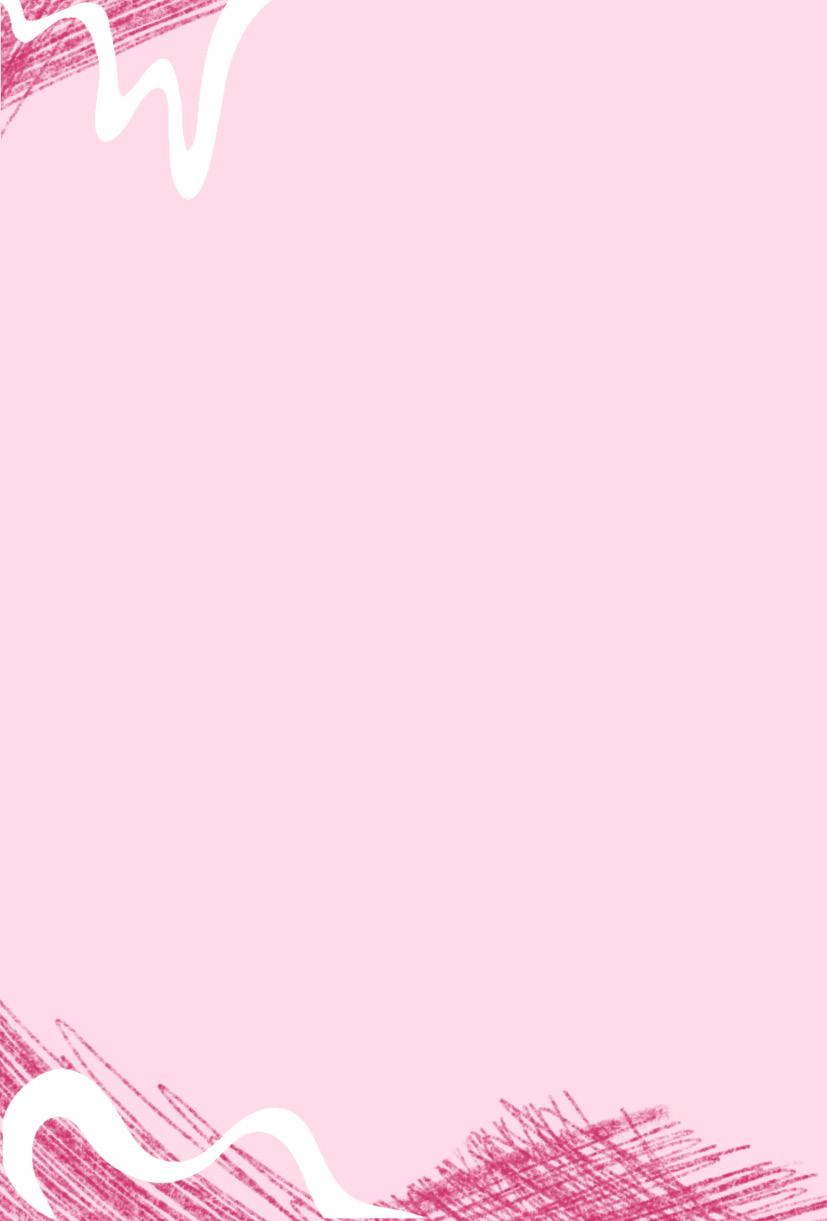
Cornea Carolyn Coyne
Prowl Patrick Lewis
I’ll Meet You at the Bottom Mustajab Farrukh
Rememories Derek Talbott
Variations on a Theme: Hikoboshi and the House of Mirrors Saru Potturi
On Forgiveness and Youth Juliette Jeffers
Self Portrait, Dreaming Reia Li
Daily Contortions Juliette Jeffers
Song of What Isn’t Patrick Lewis
Variation on a Theme by Mary Oliver Lillian Aff
View from Lycabettus Thaleia Fourli
convenient Cecelia Blum
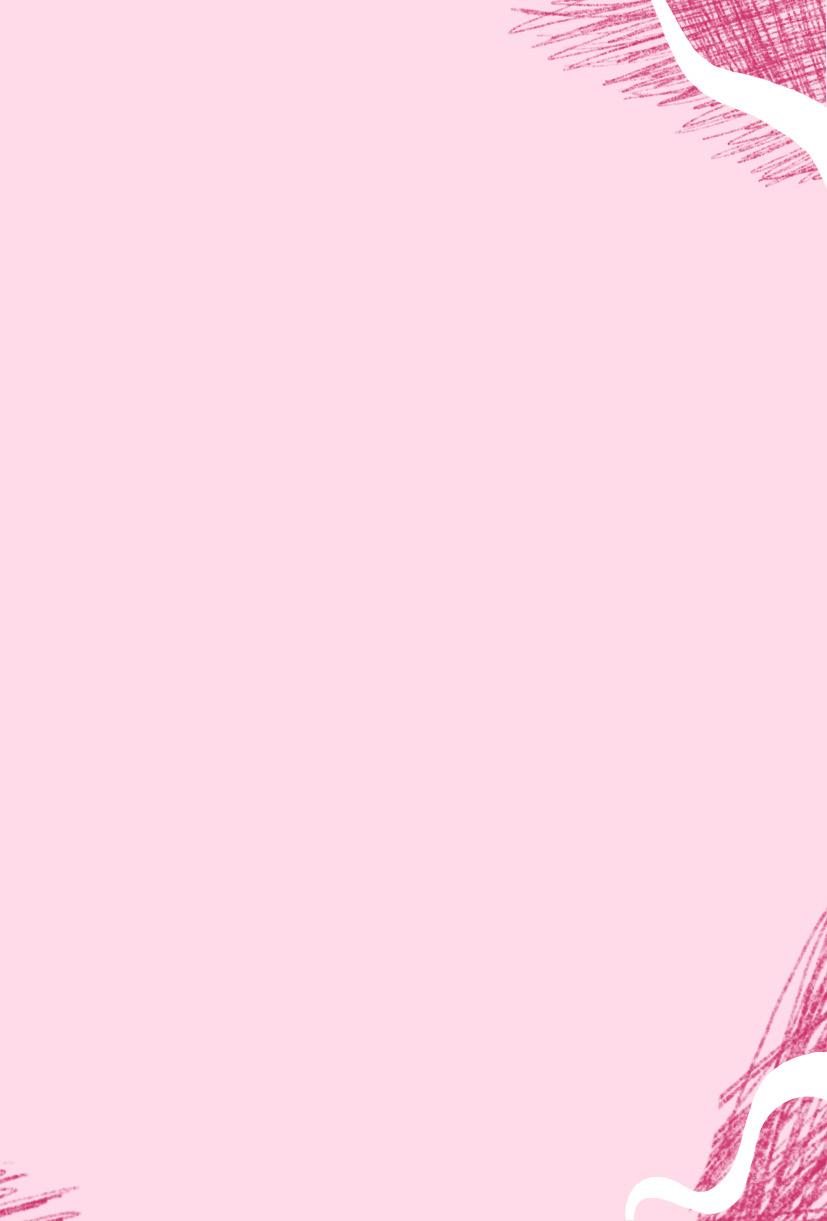
Russian River Lillian Aff
II Libby Harris
Lenorman Street Thaleia Fourli
Aidan Trulove
03:12 Libby Harris
Stories Josie Marriner
Mikaela Kimpton
The Woman Rossana Leal
There’s an icicle garden in my front yard. Stalactites become stalagmites. I pluck them from rooftops of houses with the lights off, four cars in the garage. I am responsible for skyscrapers.
My garden melts in the springtime. I return to houses with the lights off on my hands and knees, I plant flowers that I will never nurture. Every petal that darkens, a new flower in its stead. I’m not sure who notices because I can’t make eye contact.
Nothing can grow here, save for indifference, flourishing in the unspoken, in the alleyway dumpsters, filled with caviar and half-empty champagne bottles, the midnight bus downvalley, the faded letters of the boarded-up-bakery on main street, the walls caving in. There’s a new Chase Bank down the street.
Maybe I am no better, to reject my own soil, where old roots remain. Roots that entangle with others, growing together, defining one another, birthed of one land. The ice always seems to melt, but I know how to photosynthesize.

Thaleia Fourli (PO ‘24)
Self-mythologized in yellow, she turns her face up towards you on the escalator.
Neither here nor there, telling stories about the most inspiring ouroboros of the mall and a spiritual awakening at a cruise ship dinner with an all-white dress code. When the unthinkable happens, you drive around skipping songs, as she searches for an open space with her fingertips.
The faded pink buildings are as unchanged as the contents of the hospital vending machine. While you’re stopped on the bridge, a man thrusts half a melon through your car window and it glistens, helplessly in the four o’clock sun on the drive home.
A symptom of the century Big blanks and scrapped plans
Someone forgot to check the brakes and Now no one can slow down on Hills of rubble growing taller Still smaller than the weight of the Sun on my face and wind Tangling hair and limbs Summer air too saccharine for a Mood this sour
With each hour it’s more difficult
To imagine a time beyond the present
A symptom of the century Big blanks and scrapped plans Problems for tomorrow, tethered to today
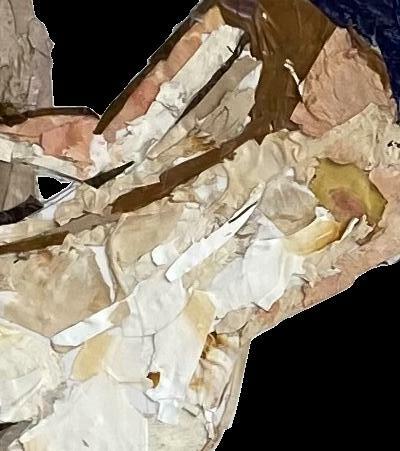


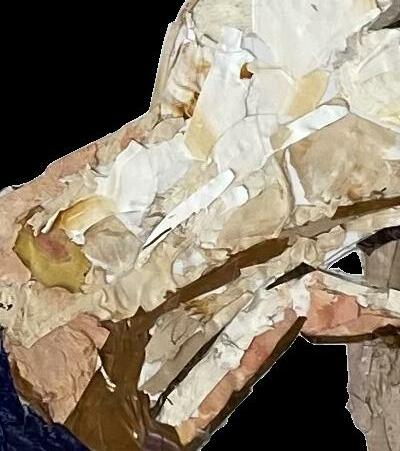












When it is bare, I tell myself I cannot dematerialize because there are letters on the way. I have to respond. My fingers must be substantial enough to open an envelope, to grasp a pen.
With every word, every line, I feel more solid.
When I walk back from the mailbox, hands empty, I don’t look down. I don’t need to.

My friends keep me on this side of the sea. Remember the ivy I was gifted? Well, it died.
Water weekly!, the instructions declared, cheerily. But, what are weeks? The Day stretches on. The ivy does not even last until noon. When I feel its crinkly leaves, my fingers waver. The tip of my thumb passes through a brown leaf. [….]
[….]
Fine.
How do I stay corporeal?

I cook.
For a while I ordered out constantly, but a few bites in and I was no longer hungry. A single portion would last for two meals, maybe three. Tteokkbokki, kimchi stew, ribs. (pine nuts, roots, bark).
I bought ingredients. Tofu, miso paste, mushrooms, noodles, greens. Hot sauce!
I cannot dematerialize while my bisque still simmers. I need my fingers to chop, to slice, to stir. When I saute garlic I am gloriously, incandescently, alive.
My ivy is still dead. Dessicated immortality. Permanently.
But the green onions I bought, cut the tops off of, and stuck in a cup of water, grew out. Twice. It is wonderfully, vibrantly alive (mortal). I think it would sooner rot than shrivel.
I don’t know what I would prefer. What do you think?
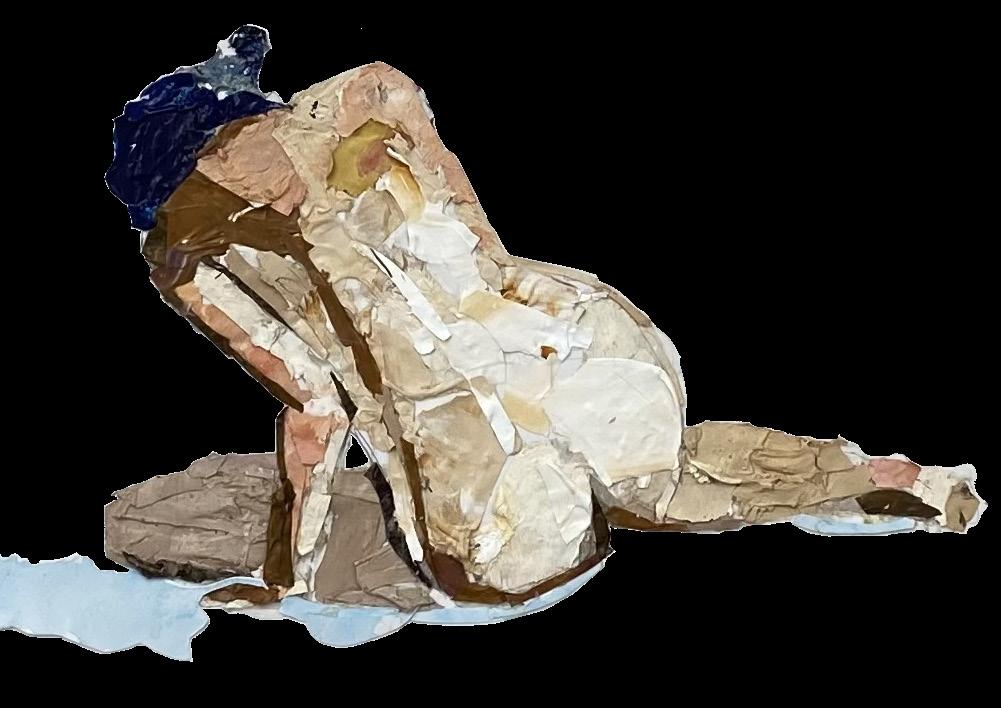

My heart at your feet. Fallen pines, dragons sleeping. Clouds rush on – I, too.
Morning I Libby Harris (PO ’25)
a staggering sound echoes in this abyss—shaded ebony by untold lifetimes, glimmer of iridescent dust borne from death—eternal reverie, this bouquet of dewed morning glories scattered about an abandoned expanse, do you float upon the foam seeking a wandering gaze?
fugitive hue—paint this boundless canvas with pigments long faded, these eyes glimpsed a foregone beauty, here lies no redemption, a waterless ocean, somber and unrelenting dusted with radiant drifters—creators of life-offers a salvation that has vanished, whispering to me, aloof: heaven is ten million light-years, departed and so, forlorn breath devastated the silence, a regard too late, these fingers reached above the wind contemplating a composition draped in a haunting farewell, one that should have only existed in memories, God and all his angels left a long time ago.
We’re sitting at the counter of a 7-Eleven in Kaohsiung when she says it, nonchalant and contained in equal amounts, like a recipe that calls for ¼ cup of cream and ¼ cup of brown sugar so you can measure them out and only wash one vessel.
“I’m moving.” A drop of condensation from her milk tea rolls down the cup. She doesn’t bother to stop it. “Emmett got a job in London.”
Outside, the rain beats down relentlessly. When customers approach, the sliding doors part to allow them access, warm, soft summer air filling in the gaps they leave behind. Mandopop from the 80s plays in the background, interspersed with ads about the latest deals. The cute cashier I’ve been unsuccessfully attempting to flirt with all summer is on shift, and yet at this moment he could be replaced by a beagle operating a cash register and I wouldn’t spare a second glance.
“Did you get a job in London?” My throat is dry.
“Not yet… but I will.”
“You’re going to London when you don’t have a job?”
She looks at me. “You know who you sound like?”
There’s a man on the other side of the store eating oden, eyes glued to his phone. He takes a bite, I tap my fingers errantly on the counter, and the fish cake looks whole again. He’s so absorbed with his feed that he doesn’t even notice. He bites again, I tap, it repeats. When a couple cycles of this go by and he finally looks at his skewer incredulously, I cough and turn towards my sister, whose disapproval shows between her eyes.
“Stop messing with people like that.”
“I gave him, like, an extra fish cake. I’m sure he’s happy about it. So it’s decided?”
“Pretty much, yeah.”
“Does Emmett know? About…” I wave in her general direction. She sighs. “No. Not yet.”
“You like him enough to move to a completely different country for him, but not enough to tell him?” I say this to hurt, but in reality I am secretly pleased. This is our thing, the one thing we share that isn’t lineage. I can’t say I have her grace, her way of eating dumplings skin first, like a crazy person, or her ability to leave things behind so easily. Maybe I’m not quite as brave.
“I’ll tell him eventually.” She gnaws at her lip, a habit A-ma always condemned. “Do you… do you think it really matters?”
I watch motorcycles whiz by in the street. “No,” I say. “Isn’t he an atheist?”
“Yeah… but his parents are like, really Catholic.”
“Oh. Tell him not to tell his parents.”
“Why, you think they’ll accuse me of witchcraft?”
“No, I think they’ll use you as their poster child for miracles and you would just let them, being the doormat you are.”
She elbows me, then slides her red bean bun over. There are neat bites taken out of it, slightly more than half left. “You’ll be okay, meimei. You’ll be too busy with your senior year to even think about me.”
That’s the problem, I think. I’m turning twenty-two and I have never learned how to be my own person without you.
Instead, what I say is, “Can you do the thing?”
“No.”
“Please.”
She sighs, tugs her ear, and then the stock pots of tea eggs stop boiling, the refrigerator buzz vanishes, and Teresa Teng stops crooning. I look over at the other people in the store— Cute Cashier has his face screwed up in a funny way and Oden Guy is halfway through a bite of his milk pop. I hope he doesn’t have sensitive teeth. Outside, the raindrops are poised in midair, like perfect crystals. The first time she did it was also on a rainy day— I was six, and I remember trying to lick every raindrop. Now, I scoot closer and lean my head on my sister’s shoulder, although she’s shorter than me so I have to hunch a little. She’s wearing the mauve cardigan she stole from my closet this morning, and yet it still smells like her, somehow, like she just can’t help leaving a mark wherever she goes.
I close my eyes and plug my ears so that if this moment ends, I’ll never know.


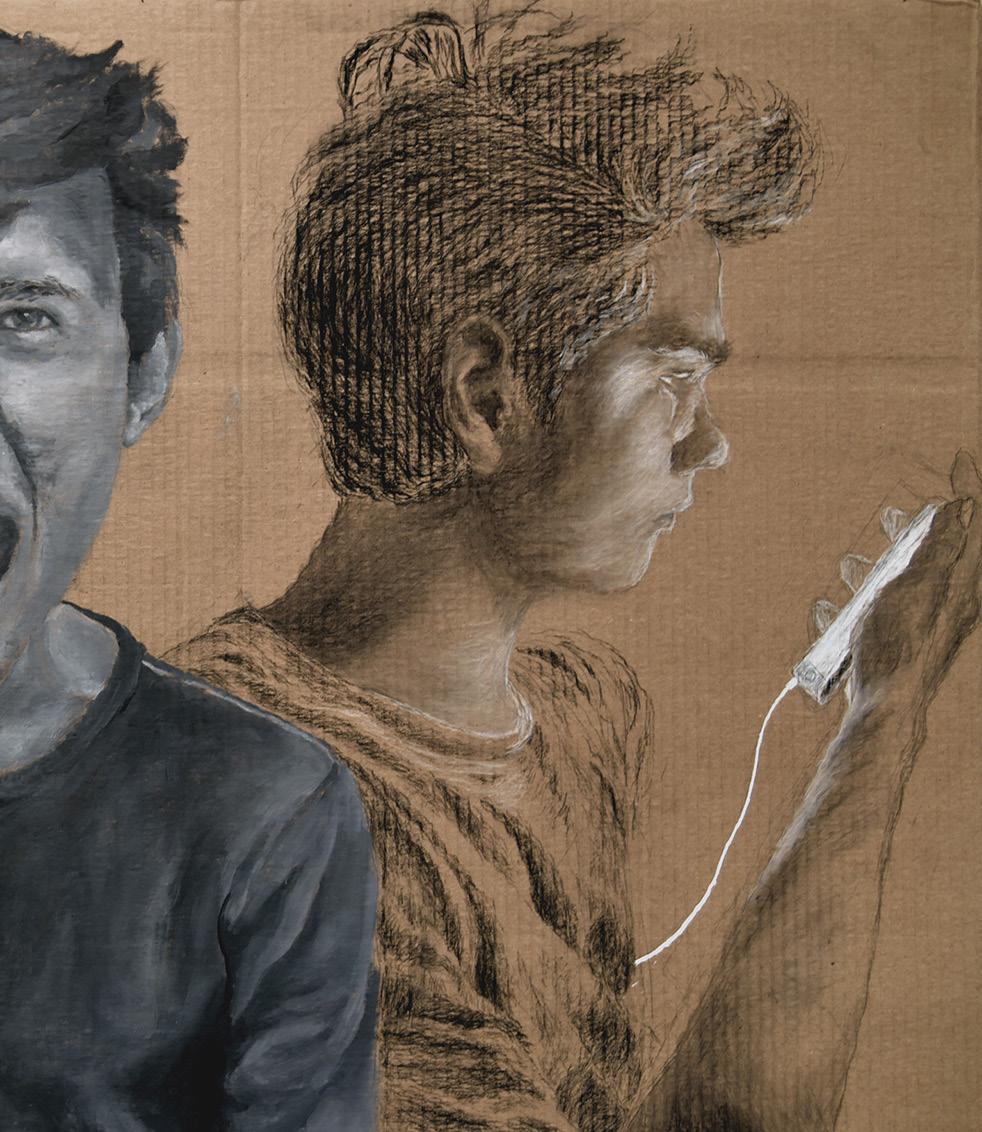
shades of green Lillian Aff (SC ’22)
the river mouth in Jenner is shimmering like a youthful steelhead yanked from the water on a fishing line and I am following the river down highway 1 through the cradle of Kashia
tenderly I travel past the biʔda šinati unknowingly I grasp at the views of the coastline acting like I know the names of the unnamable acting like invasive species, the untamable
where did I end up – Pomo territory continuing the tearful trail of my lineage from the southeast to the northwest while my lolo pans for gold in Marysville
I come back to tell them I’m gone as if they didn’t know that as if I didn’t know my own head as if Aunt Judy isn’t already dead and the jade dragon doesn’t get dustier as if I never noticed the way I rush myself from the farthest end to the treehouse ridden with wasp nests and tetanus
as if I’m unmoved by the many ways these shades of green tried to hurt me we had Judy’s memorial in that house in Loma Rica where the sprinklers ran for hours and we lounged in bathing suits but that day it was cold and my Uncle Wayne was out of prison for good he said how’s school he said but he didn’t even know my age and he chain-smoked until the end and we stayed the night in the room where I always thought the aswang were hiding in the wallpaper, ready to suck out my blood and leave me a husk
losing mom was like eroding on the shore everybody sees the rocks the same though they’re incrementally smaller as they roll over one another in the waves
I’m going to Marysville, I’m going to Oakland I’m coming back to the coast, I don’t want to be anywhere else until I’m already there my ancestors were colonizers and indigenous with families that swapped and spilled each other’s blood until I came out screaming redgreen and hardy like the trees where I grew up
losing love is like being blown apart by the air that separates our fearful spirits I can feel the wind blustering behind me even though she can’t find me
I’ve decided this is going to be a happy poem No more talk of this grief that makes my bones too heavy to move This weariness of the soul that has me disassociating in the middle of a conversation with my mother

And this terrible, terrible pain somewhere (everywhere, really) in my body that I can’t talk to anyone about because Mustajab, you really need to stop imagining there’s something wrong with you.
I’ve decided this is going to be a happy poem, So I can’t talk of how it took only about 45 visits to the doctor and a several 100 scans for him to say
There’s a cyst burgeoning inside of you, we’re going to have to cut it out There’s a cyst, so you’re going to be going through pain for a while There’s a cyst, but it’ll all be alright, just painful.
I’ve decided this is going to be a happy poem, Of course then, I’m not going to mention what he said next, that doctor He said sometimes Sometimes the things in our head hurt so much that when left unexpressed and unattended to, they begin to physically manifest themselves (the heartburn, the stomachaches, the nausea, the migraines,
the chest pains, the-)
That’s why you’ve been hurting, there’s nothing wrong with you really Just your head.
Since this is going to be a happy poem, I guess I can’t mention the look in my mother’s eyes as I lay in the suffocating white of a hospital bed Don’t do this to yourself. Don’t do this to yourself. Don’t do this to yourself. I gave you Everything.

You did give me everything mother, So I don’t know why despite the painkillers surging through my bloodstream I still ached.
I know that this is supposed to be a happy poem, And so I promise I won’t tell you that my brain has been conditioned into thinking that respite is more fleeting and more temporary than the flicker of the dying sun on the ocean that weeps for the shore, And the only times I’ve felt at home in this body of mine have been(I don’t know, when?)
I won’t tell you that sometimes even when I’m a thousand miles away from home, I still see the brown of my mother’s eyes reflecting my pain, her hand on my wrist that a needle too many has suckled on And she tells me not to do this to myself.
Perhaps the next poem will be happier.
lost in the thicket of insincerities, insanity the dried-up days they cast away wait for golden strands made rare in my misery spirits away, they never stay lost in the thicket of insincerities, insanity
sparked flames of jealousy all they ever do is take wait for a hammer for the hourglass they stopped in may lost in the thicket of insincerities, insanity turns decades into mystery left abandoned, swallowed whole they wait for embers fading like the dying search for yesterday lost in the thicket of insincerities, insanity wait for
I’d catch an unmistakable urge to roll, laying in the grass, mind in the late afternoon clouds migrating always in the direction of their shadows, shadows on the left side looking south, I share the late afternoon’s suspicion, a trick had been played, the clouds, blown by the wind off the plain. A plain which hides nothing, presents nothing, eyes remain on the shadow, on what was left, suspicion of a trick so deft it robbed the tricked of its very premise. How blue was Lake Ore-Be-Gone, a question tried but not believed in, question of geography. Agates no longer concealed among the pebbles along the path, farmers export their soil, fertility of an ancient lakebed, carried by the truckload, thinking thins, wrong answers strained by a question’s false promise, Big Detroit and Little Detroit named, eroded sand bar which separated, waters mix, distinction continues, words search for questions, false imagery. Words drown on jet skis, no buoyancy, only the westward undercurrent. Two towns, neither farther north than the other, one privileged by memory, left before a loss could be registered, the other a reconstruction, obsessed by the fear it had lost itself already. How does one land, vertigo already in the ground, vacuum you can only pass over, trains don’t stop and since the underpass, neither do the cars, Detroit Lakes the tourist town, we were too, knew we wouldn’t stick. Three small churches, one pastor, commuting, did you ever consider Fergus Falls, or Vargas, or Perham, or Frazee, turkeys crammed too close, or Morehead, but no, Morehead is too big, too close to Fargo, and it floods every spring.
You need to eat healthy. Go to the grocery store and buy some fish, ask the fishmonger which fillet contains the most mercury to poison your perky sisterin-law at the dinner table. I am a chef, you say. Poison can be edible.
Look at yourself in the mirror. Tell you, the self-loathing other, you love yourself. Four syllables to purge, along with last night’s fish.
Affirmations every day, twice a day. Three times a day on Saturdays because you are ashamed to go to synagogue. This is your prayer.
I am kind. Kindly repeat this and affirm you haven’t spoken to your friends in one year. Plurality implies abundance, which you replicate with television subscriptions and canned marshmallows.
Exercise. A run will warm your joints, who complain of regret and solitude. Circle past your old neighborhood, pretending like you are a tourist lost on a suburban vacation. These houses, filled with strange white faces, are your friends.
Be happier. Find that happy little pill, you kept it in your cupboard for a reason. Swallow without water, three times a day.
Repeat each day.
Crushed Bone Louis Burns (PO ‘24)
He slipped the note into his pocket and left the library. He turned to look where he was sitting to make sure he left nothing behind. The guy across the table looked up and smiled. Toothy and winsome.
The note had his cell phone number on it. He felt giddy. Outside he sat on a bench, pulled out the number and began a text but couldn’t think of anything witty. In situations like these, you have to be witty, right? He was tempted to Google, “What to do when someone gives you their number?” He stopped himself, looking over his shoulder. What if someone saw? What if he saw?
He’d seen this guy a few times before. Entertained lascivious fantasies.
“Look out for the bees!” His mom called. Sometimes there were bees in the tire swing behind their house. He ran and checked inside. No bees. His mom, pregnant, slowly walked over. He jumped atop the tire, the tree limb bounced; the tire was hot against his bare thighs. He knew if he waited long enough, the pain would go away. His mom pushed him.
“Higher!”
He went higher and higher. He felt a thrill as he passed the tree. What if he hit it?
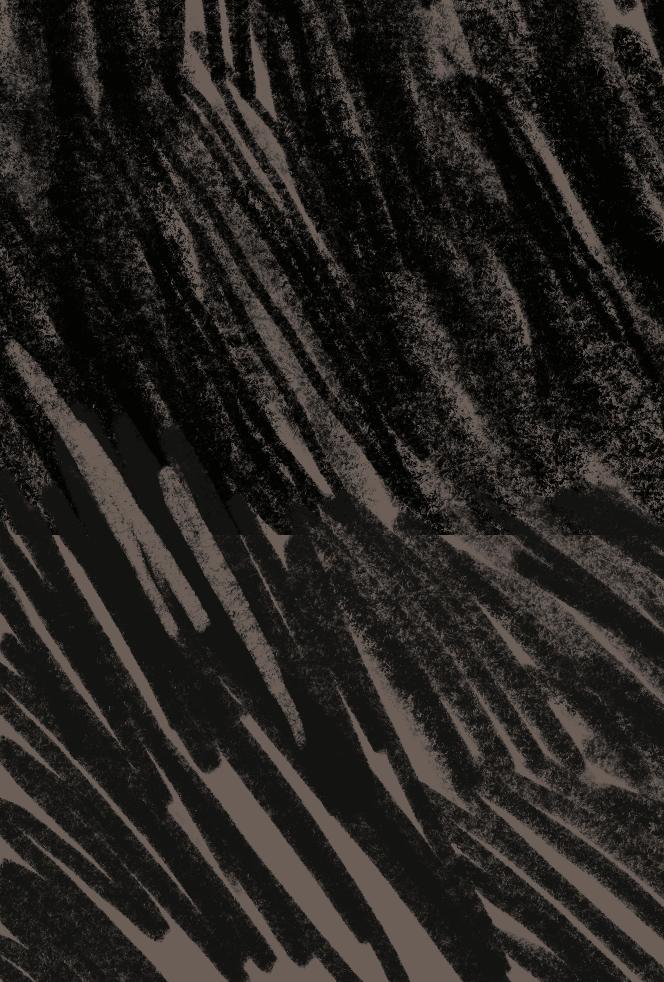
“Higher!”
His mom was busy texting. The swinging slowed, then stopped.
He got up and walked to his dorm. He thought of the perfect text: “Hey cutie,” or “You left this at the library,” or “Want to get dinner sometime?” It was simple, clean. His style.
He’d send it when he got back to his dorm. There he was safe. Lying on his bed, he typed, “Would you like to get dinner sometime?” What if he said no? His thumb hovered over the blue arrow. Send. Then he Googled, “What to do when someone gives you your number?” He clicked the first link, it was some teen magazine. At the top of the article was a warning. Do Not Text or Call Numbers You’ve Received From Strangers. That’s the point, right? Anyway, he continued:
Don’t text too soon. Oops. Ask them out. Check.
Compliment Them Shit. Too late? Ask for their name, Don’t give yours first. He already knew his name. Check the number twice. To do!
Between each step was a candid photo of a teen girl dressed in a pink tanktop smiling at her phone, her teeth white like innocence. If only her parents knew.
He pulled the number out again. Checked the number twice. His handwriting, bubbly like his girlfriends’ in high school. Yes, he’d said. Yes!
Holy shit. Wait, what if he’s a serial killer? If he remembered anything from high school health class is that you should always meet somewhere in public first.
He pushed his sister on the swing. She giggled and squealed. Like him, she asked to go higher. He pushed harder and harder. He lost control and she started going sideways. She hit the tree hard with her knee. She yelped. He grabbed the tire and dug his heels into the grass. She fell off the tire wailing. He hugged her, tried to comfort her. His mother ran to her.
“What happened!?” “She hit the tree.”
He knew that wasn’t right. She didn’t hit the tree. They went to the emergency room.

Hey, wanna come over to my room tonight? He’d texted back. That was not a public place. He freaked. Fuck, I’m so dead tonight. He probably wants to cuddle or Netflix and Chill, or whatever. He Googled, “How to shave your ass” Then turned off his phone. Screamed into his pillow. Yes, he texted.
He was tempted to turn off notifications. Head in the sand. It buzzed. “Ok, come whenever! Rush 292”
He smelled his armpits, picked his nose, put on more deodorant, picked his ears, and checked his fly on the way out. He knocked. There he was, in PJ’s smiling. They hugged. He was warm, like a good warm. Cozy warm. Hot-chocolate-on-a-snowy-day warm.
He wore a white tattered band t-shirt, Grateful Dead or something. It was faded and worn. When he grabbed a blanket for the two of them, he could see holes under the arms. It was casual, college dishabille. The skin taut and glittery. His hair, uncut for some time, wisped like cirrus clouds on his neck.
He walked out towards the tree and remembered the swing; he could imagine
it there. It was a rare blue day and the sky surged through the naked limbs. As he approached, the tire looked more and more real. Then, it disappeared. He looked up and saw the frayed ends where the rope had been cut. He remembered how his father went out that night and cut the tire swing down, and threw it loudly in the trash in the garage. They didn’t talk. That was that.
They listened to Norah Jones and petted each other’s feet. He licked those baby hairs. They undressed.

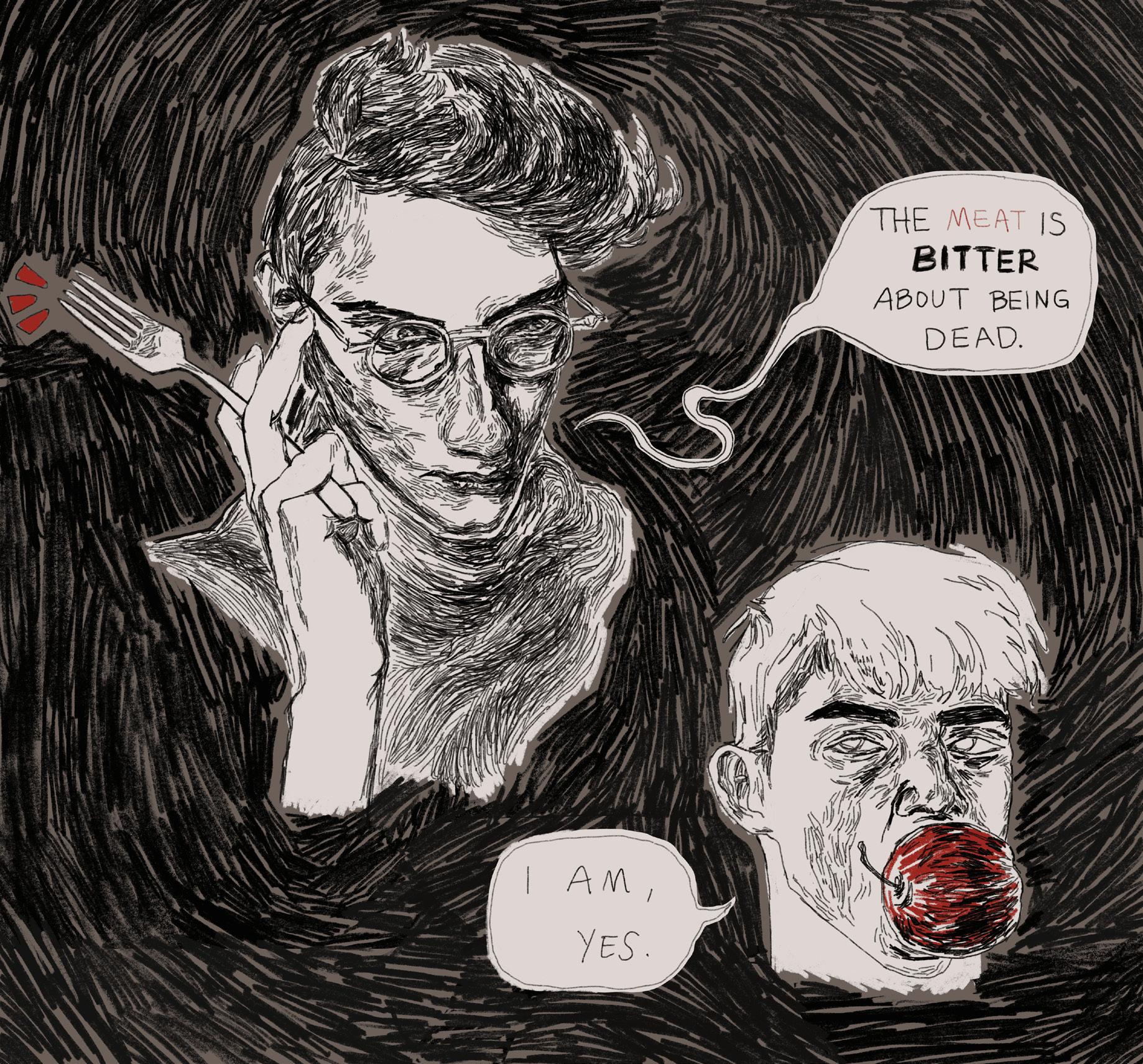

1. The sea swells open. The ship capsizes, finally, all her wood splintering. All people drown eventually, the water coming to claim what’s hers: she widens her maw, and drinks.
2. Mourn, perhaps. How long do you think she’ll wait for a day that will never come? Her gaze lingers on the skyline as your children play with the waves that took you. When do you think she’ll accept that she’ll never see you again—in a year? five? when you left home all that time ago saying you were going out to sea?
3. In the absence, inevitably, a ship becomes a mother. Carpentry becomes body, planks a rib-cage playground for her boys—they are still boys, after all, playing at harpoons and twine. They weigh her down with whale-corpses and pile oil-coffins in her heart. She keeps them afloat. She wears her bones proudly. There’s no haunting without a woman at its center.
4. Rest, at last. Put to bed your salt-laced dreams, your ocean reveries. Tuck your bones into sand and silt. Sleep: in the waves nothing much changes. Your water-logged woman pulls you close as you sink together down to slumber, All sail and mast, bone and steel, salt and current. Her embrace crushes the breath from your lungs. She holds on to you, or maybe you just never let go. Salt beneath your eyelids and filling your mouth now. The current says, yes, and welcomes you to her depths.
Don’t think of your land-locked girl; she’s a million miles away. Distance weathers memory, wears down its sharp edges and scatters it to the wind. As for me, I’ve long forgotten the sound of your footsteps coming home. I don’t miss what I’ve already lost.
5. I think that Moby Dick must be a woman. She swallows violence like so many sailors. Can you undo the clasps and hooks of her ghost-whale bones, and crawl into her abdomen?
Pedestals of weathered marble stained with rain and the tell-tale sign of birds. They sit as the blatant sun ignites the sky, one final time, leaving embers of speckled stars in its wake.
Ancient vertebrae straighten and are relieved from the day’s weight; immobile automatons perfect in their rigid task. Soft chirping, crunching crescendos and echoes from the inner reaches of solid bodies.
Rocky humeri rotate in stiff scapulas specifically cut for them. The sounds of one-hundred record players harmoniously scratching unscathed disks with no particular beat.
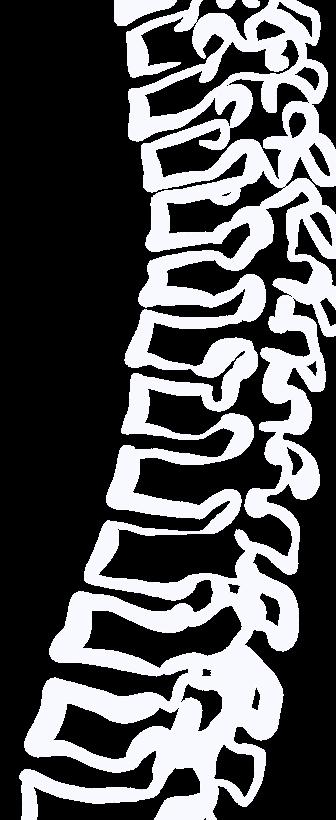
One raises a hand. Greets their bronze companions through the barricade of conical conifers, clicking as it shifts. The moon’s light reflects off their cool skin as if it, too, is waiting to be greeted.

It will never receive their rocky regards. Carpus clacks against metacarpus, Percussive snaps echo quietly Through the still night air, Wondering if they are confined for eternity For purposes that are not their own.
To be photographed, Sold, Observed, Passed by.
They return to their positions, Readjusting their stiff capes to assure They are more comfortable tomorrow.
This is the fate of Eternal Art.
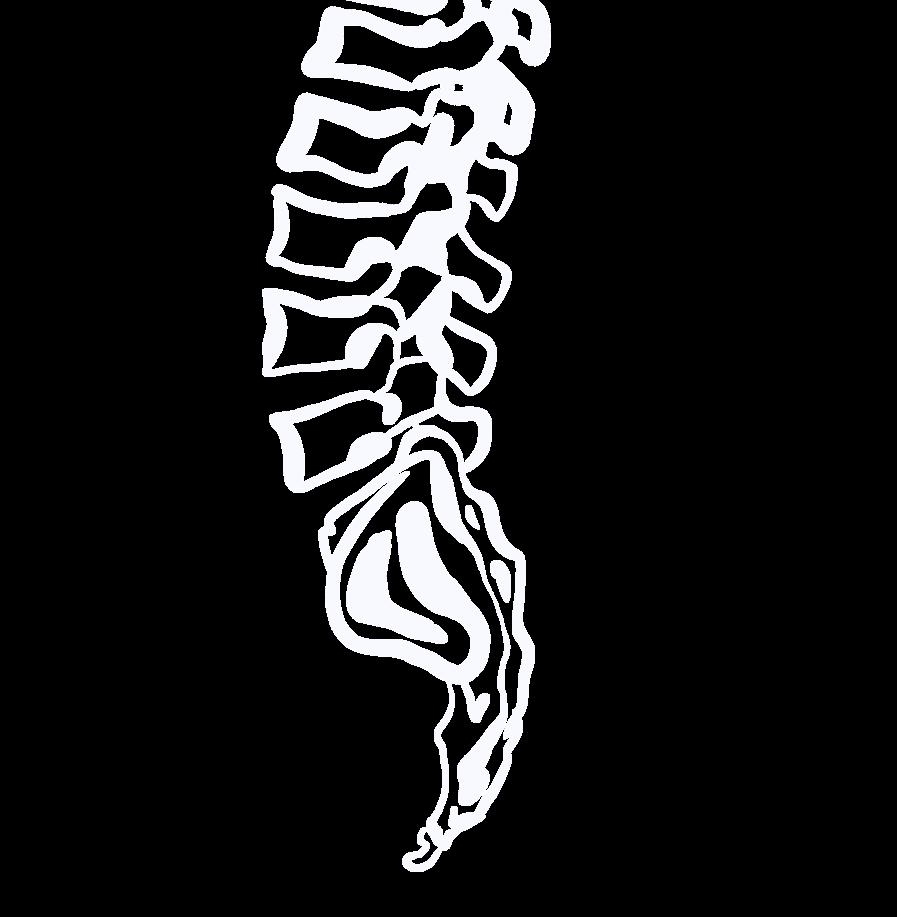
another Isabel Li (SC ‘25)
solitude: it lingers on my tongue like an insipid, indigestible pill, waiting to lurch into my throat, tightened with a cloying angst. just swallow it like pride, perhaps. i need my body to accept the inert aftertaste of anguish, feverish skin starved of warmth from a familiar’s presence, singular sobs stuttering upon sighs. but it’s blissful, isn’t it?
the freeing silence, untethered to any stranger’s heartstrings, without the stubborn aches from a forced smile, nor the blistering chills of conscious perception. heal me from the dizzying enigma of longing-just to find myself yearning for another
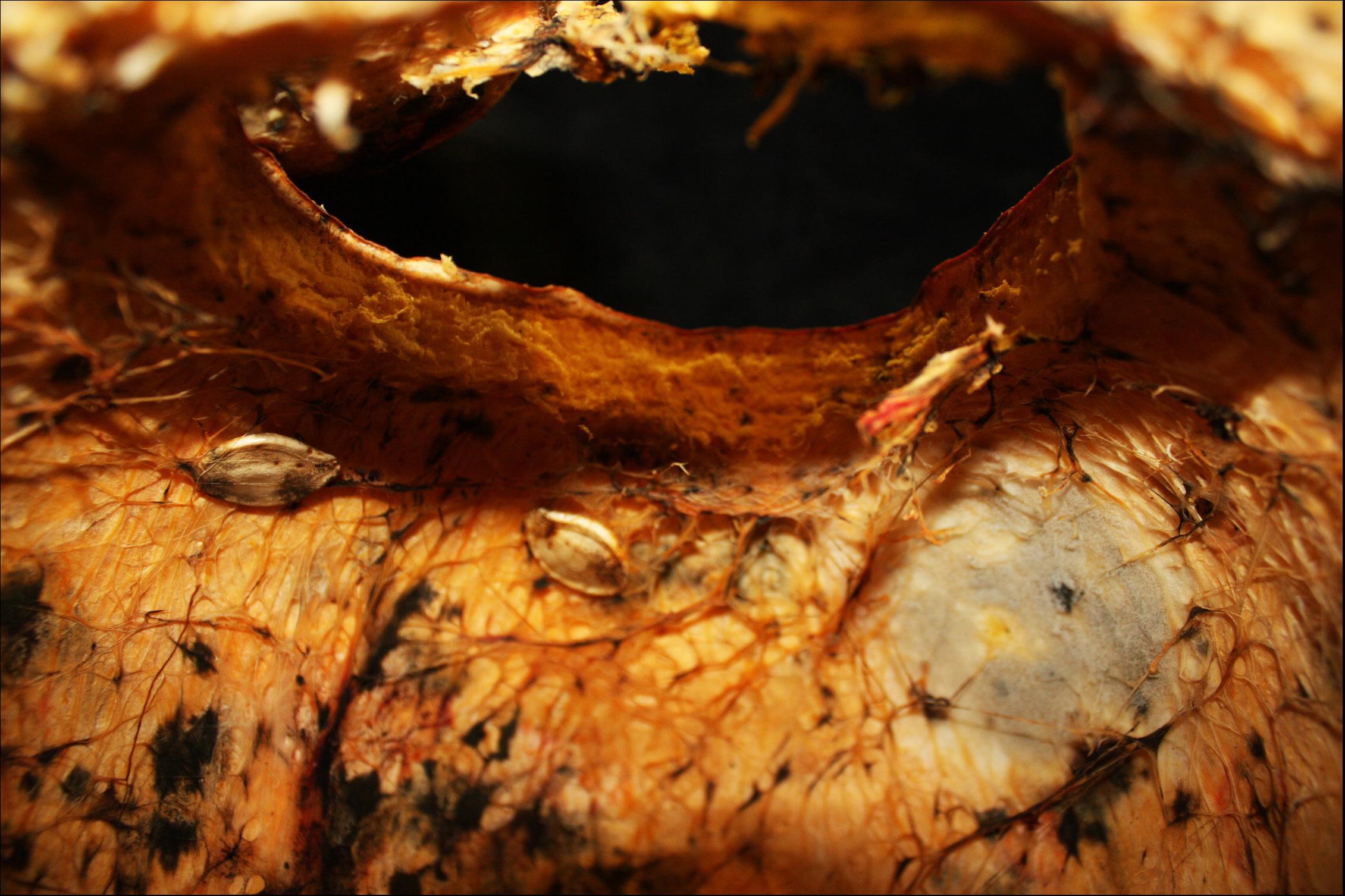

The year is 1922, and in this sleepy Michigan hamlet the night of the first snow has brought silence to the world. The powder piles deeply around each oaken home, where it shifts mystically by faint firelight or gleams in the newer electric glare. There is nothing but forest for miles about. Stately pines in their fresh white robes, maples gnarled and leering, shadowy hemlocks like strange dark fences, and baleful palings of birch. Among them, things that prowl. The moon shines silver on ghostly coyotes and bobcats stalk soft-pawed for hares. The deermice are burrowing across the snow, and when the owls swoop after them their wings make not a sound. To everything there is the kind of hushed reverence that is almost gone from the world. For in this place the night still holds many mysteries, and much wonder, and much fear.
Now and then the listless window-watchers of the night catch flashes of yellow eyes out there, beyond the reach of the light. And some are afraid, and some lock their doors.
But if the yellow eyes look back, they find in the dwellings of men and women only an inscrutable shadowshow: silhouettes that move strangely on backdrops of sourceless light, something entirely senseless, something best left alone.
What would it look like, perhaps, to a curious owl or a wayward cat, as this large and scattered family reunites at the old homestead at the outskirts of town; as their strained hellos give way to guarded talk, to lengthening silences, and finally to wondering why they came here at all? What would it look like, and where would the sense be in that?
If you unfurled your wings, if you sailed the chill air above the reach of the chimneys, would you cease your nocturnal hunt for a moment, would you notice the tailor at work through her window? See her sitting alone by the sputtering woodstove. Her work nearly done for the evening, she sews the last dart into the back of the new shift dress for the McCleary girl. Behind her, above the hickory dresser of her trousseau, beside her grandmother’s old mantel clock, hangs a daguerreotype of a bright-eyed man whose last letter she still reads every night.
And she mends her dresses and the snow gently falls, and in that silence each tick of the old clock sounds as loud as a shot.
Then, alone beneath the stars, as you stalked your way down the zig-zag cobbles on main, would you look upwards, and in the moonlit attic above the inn see the woman sitting at the writing desk beside the dormer window? The wavering flame of a spermaceti candle spills over the reams of handwritten verse that she has never shown to a soul. As she watches the moon climb spiderlike upon the cobwebbed frosts of the pane, her wound-up thoughts begin to unspool onto paper – thoughts of things she has yet to do and places she has yet to go, of the family she never asked for sleeping soundly below, and of her remaining years which were dwindling before her. And she questions the moon about duty, about its scope and its depth, about what we owe to a family, to a town, and whether there comes a time when a woman just needs to get her own.
And what more, you prowlers, what secrets are here? What would you see as you looked on these scenes? Could your wild eyes find something I cannot? Do things appear clearer to one without words, or only more senseless still? Can these words, across time, across space, find something to shorten the gap? Or do the years make us strange as the creatures at night – peering from trees through too-narrow windows on worlds too foreign to know?
Now walk with the lynx—creep with her down this twisting lane, and peek in the window of this slanting shack. Here a dark and muttering man sits scribbling diligently on an old notepad. His left arm is gone, shot off in “that goddamn snot-nosed chickenshit European war that sunuvabitch Wilson drug us into.” He has seen the promise and the danger of the coming century as bright and clear as a nuclear bomb, and he wants to warn his neighbors of it. He wants to tell them their lives will change beyond all recognition and that all their teachings and traditions will be uprooted. But he knows they’d just laugh at him, crazy old cripple that he is. So, friendless, he fills his nights with dreams and designs of what is to come – of images carried on beams of light through the air, and of radios you can hold in your palm. Dreams of his grand invention, of his one big break when his genius will be seen at last.
But all of these are human things; all strangers to an owl’s flight or coyote’s tread, strangers even to the lanky prowlings of a cat. So after watching a while the ears turn always down, the sharp beaks turn away, and soft paws slink back to the snow-filled forests, past lonely willows and the dens of sleeping bears, and the yellow eyes recede from sight.


A dead fish floats So does the human body. (But) not before Water gushes down the bronchial pathways the lungs collapse under the weight of the air they can’t breathe, the tiny spaces between the pores of the skin swell blue green yellow, beautiful as corals the skin swells swells swells (Until) the creatures of the dark start tearing away at it dismember the body limb by limb till only the bones remain the bones that then dedicate their lives to the seabed embed themselves so deeply, so irrevocably into the ground like lovers under the sheets, lovers never meant to part, lovers whose love kills them (Yet) lovers who only live in hopes of that death. It’s how he died, they said Drowning is the third leading cause of deaths worldwide and he drowned (himself. don’t say he drowned himself.)
An accident, a beautiful day in March when the sun fondles the sea from a million years afar and the sea sings a song it has been suppressing for a million lifetimes. A beautiful day when you can’t really look too closely at the waters because a million golden fireflies dance before your eyes and the orange of a fire erupts across your eyelids as you lie back letting the waves nibble at your toes. A beautiful day, some might say, to die On accident. A misfortune. A tragedy. (Respite. Relief. A contract fulfilled.)
A dead fish floats. So did his body. I can tell you because I watched watched him slip (step carefully) into the waves that cared for him, that were much too familiar That turned him onto his back, carried him away. I watched, as the entire sea stopped moving so he could sink at his ease, so his bones wouldn’t be too cold
The entire sea stopped moving to claim a life that had so beautifully surrendered itself to it. I watched. His body floated away.
I rise and tread amid sweet lilacs through the shades of dawn
Towards the cypress trees around these pebble paths
And from their shaking leaves my lungs pretend to extract
The thousand dreams the morning sun has vaporized.
I rise and talk to monks about infinitesimal perfection
In front of cold and silent mirrors blurring my viságe
Except the timid candle in my wrinkled hand
Which cannot melt the darkness of my hollowed heart.
I rise and rest my head against these marble pillars
To hear the secret whispers gushing through their inner veins
Yet only hear the soothing clamour of the afterglow
As birds break out to hide behind the fields again.
But oh, I fall and kneel against the sacred fountain
To see the virgin moon emerge from dark, abysmal waters
And though I’ve never trusted such a clear mirage
I bend to kiss the moon and drink her honey’d lies:
A myriad dreams from another life No one yet lived, but one about to be And there it is, Your heartbreaking laughter, your timid smile
Your gazeless stare, your mesmerizing eyes
In the garden, in the palace
In your solitude, in a multitude
Corporeal, ethereal
Ephemeral, eternal Woke and oh!
The moon and waters dry away to die among the clouds
To leave me blind behind the sun’s imperious light
And though I’d like to paint the skies with grey melancholy I’d rather count the grains of sand until the last one falls
For only then I’ll know for sure that we shall meet Not in the melodies of birds around the monastery
Not in the patterns of the petals of a petty flower
But in this dimension, without rememories As one and many, And real.
Rode a stallion once in my life
A rich father’s attempt at reconnecting with his son. But the fault never lay with him-I never wanted to be known.
The stallion didn’t either. He was a beastly thing, Blue like the deepest parts of the ocean, Paint speckles flecking off him like he’d come undone
Any minute. Any second now. And I Sat on that horse and held the reins in my hands Pulled and felt a tightening around my own neck.
Woke up sweating, bare back
Slick and sticky against unfamiliar sheets. You were on the balcony taking a smoke.
I’ve always hated that you smoke.
In another dream you blew a puff
Over the stallion’s head, he chuffed and whinnied You put your hands on either side of his face
Said I know you, and that haunted me. Have never dreamt of monsters
Under the bed—only those Of my own making. But you know that. You know me. You know how this will end. The ocean’s deep will drag me back My father will line my casket with silver Mourn the son he never knew.
The fault, I repeat, does not lie with him-Neither does the stallion with me, His body too big to fit in the shipwreck. One day you will feel your way out of that brick well Find his carcass, maggot-eaten
But the meat’s still tough and raw and good Will you sink your fingers into it?
Will you feast on chevaline for days and days?
Will you love me even after you’ve forgotten?
Will we ever admit, out loud, That we’ve known the horse’s name all along?
Most things of this nature resolve in boiling water, the wool around your fingers, twisting in soap and dirt. Life is short and I have to learn to say only what is necessary. What I want to say is that I wasn’t always so sweet. My black eye was my own fault, the force of ugly things.
Maybe I don’t mean forgiveness, I still fear surface tension and the coldness of it, I don’t drive anyone anywhere anymore, I am better for it.
I still long for nothingness, and I’m still begging someone to tell me I’m this unexpected diamond in the street, some small glittering fish. Thankfully you are that someone, though not now, as I pour myself listlessly, through the street. After dinner I cease to exist beyond the tip of my tongue.
 Reia Li (PO
Reia Li (PO
Lying in bed, flattening myself, violently with clenched teeth, delicate resistance to the lump in my throat, removed each day with sheer will, and the reward of butter dissolving on my tongue. I am standing in the kitchen. Sheets drift outside like heaven. The floor rots beneath my socks, sticking to my eyelids that slide across the pan. The self is very dedicated.
I drink potassium/magnesium to get through the afternoon. The center of the center, the waters from the waters. Here I am in my house dress looking for a way out of my skin, my breath is wrong.
Crouching over my laptop, a bug bite blossoms, pale raised moon. The imposter compresses my internal monologue into my soft palate. A thawing in the moonlight, a choir call. The self is wrapped in down, in arms sticking to the damp air, the cling of sheets, the nothing of it, a universal nothing like a white mouse under snow.
How long I have spent in wordless thought in search of words for what is not I care not to know and so know not.
I think each unthawed thought of the past has come to be lost in the winter of this: that truth loses being in want of expression.
If every silence that I have measured in thoughts of which or even whether words can capture thought or not were gathered together, and set to speak, then the whole society of solitudes would still have nothing to say.
I wish I could dream away the day in listening to the drifting snow, and singing wordless what I cannot know.
we feed this feverish plot, we are nourished by the mystery.
I caught a lot of bugs back then, or, what I thought were bugs—roly polies, the only terrestrial crustaceans adapted to live on land alone
I would hold them in their tiny spirals, protecting their gills from dehydration, but how was I to know?
I didn’t know what an arthropod was I didn’t know I could kill just because
I held them, then I dropped them onto a castle made of wooden blocks, left them to shrivel in the sun, a string of pearls
Five years old with copper blood on my hands I didn’t know that they bleed blue
I had a nightmare, many nights, that giant roly polies came out of their shells, exoskeletons like snakes molting, antennae the length of my arms
They teleported me out of my room, into their cave, where they dissected me, piece by piece, taking an ear here, a finger there, testing if humans have anterior shells to mark the past, then they’d put me back in my trundle bed
They came back the next night and did it all over again, but this time it was my heart, my liver, my kidneys: turns out I didn’t need those the next time it was my iris, to test if I could control light that time it was my larynx so I never have to guess what it’s like to be voiceless—that’s the best thing about recurring dreams—subconscious conscience
I’d wake up in my own waste, tangled together with stains on the sheets, sure to fall back into my vivisected body, wildly terrified in posterior hindsight: out of pain came more pain I’d done more than I could have known.
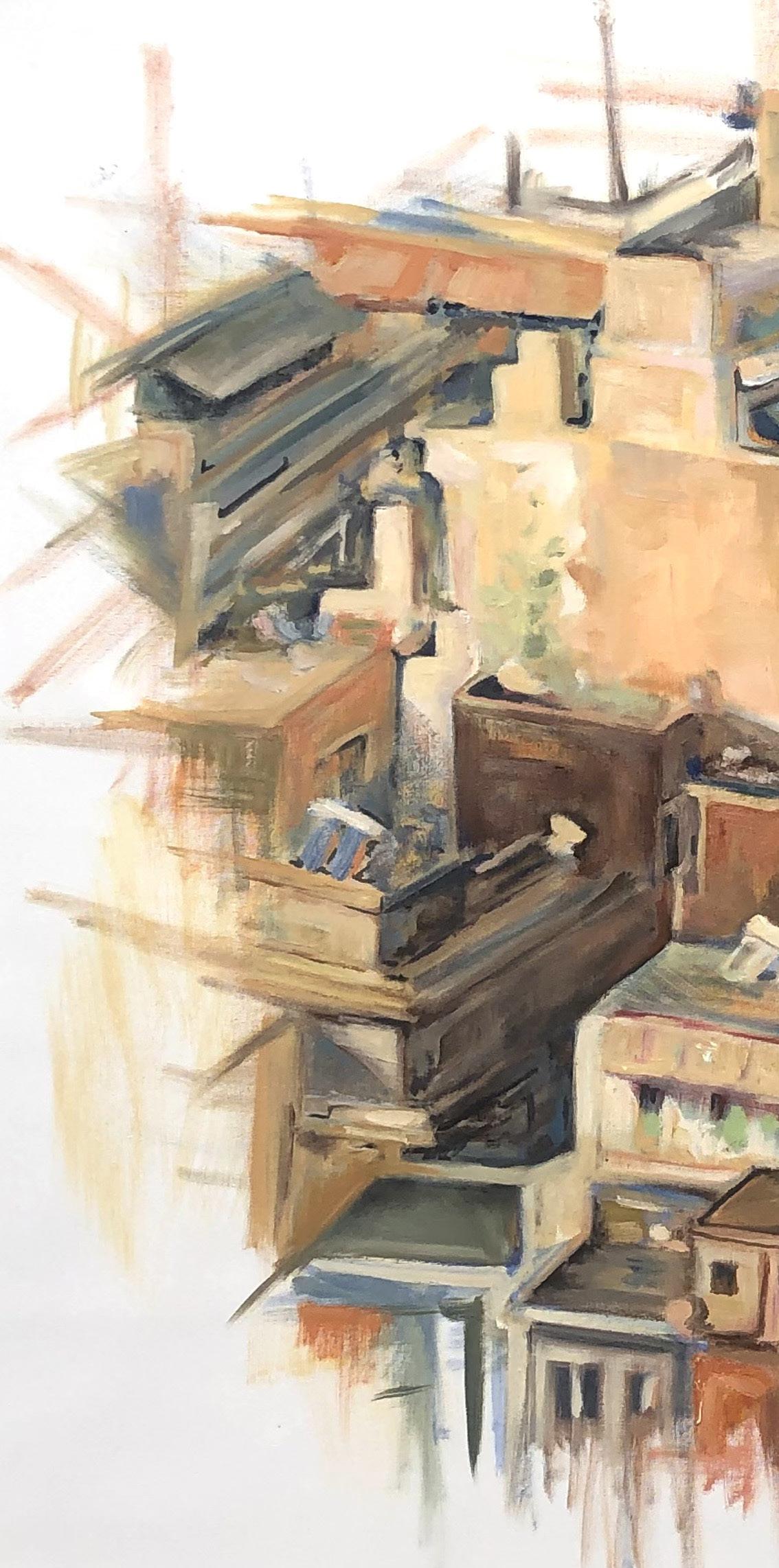
Thaleia Fourli (PO ‘24)

Cecelia Blum (SC ’24) above the paperwhite expanse one million incandescent suns are in position
happy little universe
Charms, the Luckiest from his perch he outstretches his right hand to meet yours dayglo Confections-consume the future! plastic bottles shyly smile begging to be opened to fizz, expand, exist yours to keep though not for long happy little friends liven fifteen balconies
the waving hands of eager, sticky schoolchildren permanently paralyzed And ever active The curse of their creator
a would-be desert flooded by a sea of miniscule cries products deafen the poignant silence
So many friends you’d never run out so pause here forever never run out twenty- four seven 7/11
I lay in the daytime lantern rocks and branches and bugs poke into my back the book is the lampshade I look for someone to return to in those pages of her I look up: no one is around I swim to the rope swing I stain my notebook with silt I get up; the pebbles plop I see the river I see the redwood horizon I try to get back
I saw Mary Oliver walking down the dusty path I asked her, where do we overlap? we ate blackberries, juices leaking on our faces until no one recognized us the underbrush pricked our fingers we were dappled in the shade we looked bruised: we blackberried she saw me before I knew her name she saw me in a hospital bed in San Francisco she saw me learn how to be straight
and Ada Limón, with a transistor radio, came up from behind, started playing “Respect” by Aretha Franklin, maybe the memory was meant to be imagined, maybe we’ll both keep pretending, she seemed to say, she said nothing, she was an observer of neighbors, and friends and many close deaths of the winding roads and of my home she went to the river where I swam every day for seventeen summers, sometimes wading, sometimes gliding like a water strider, sometimes sinking under the weight of unnatural men pummeling us against the car seat sometimes screwing through the pain sometimes sitting in the memory and skipping rocks slowly, surely
my mother sometimes calls me to sit in silence for two minutes and thirty-eight seconds, or until I hang up the phone I never know what to say to a swelling expectation, the weight too much to hold in my heart when I’m far away I imagine I’m fixing her a plate of potatoes and steak despite a meal’s momentary essence so, let’s talk about presence: presence is rolling the minimal into a ball so that now we’re in fetal position, seeing the liminal as the middle of the ritual even when we know it’s almost over
I still want to be at the before of everything I still see my mom sitting on that same beach with her book a fold-out chair, handing me a scallop-shaped cracker with a wiggle of easy cheese, warning me not to go too far in: the river has its undercurrents
I imagine what she would say, now, if she could say it and if I’ll ever know what it’s like to be aphasic: when a stroke of bad luck causes your words to hover
I wonder when Mary and Ada’s voices became the voice of my mother

Cheek turned, hot tea spills –Your hair wet, gazing, contact –Past, you don’t know half.
Fourli (PO ‘24)
For me, Poetry is biting into a raw peach. Sometimes, it’s over sweet and gooey, So ripe and pretty and perfumed That it’s rotted from the inside out. I throw it away.
Sometimes, it’s tough, gritty. Under ripe and impatient. It slides pulpally across your tongue, Strong, like a torn ligament. Spit it out, quick!
Sometimes, it’s been grilled, But then it’s not really raw, now is it? I call that cheating.
Other times, it’s sliced up in a can, Dripping with juices made to change its nature. Better, I think, to buy them fresh.
Sometimes, the outside is perfect, Pristine and orange and round, Not a bump or blemish to be found, But then you find out the farmer beats his wife. Maybe not, after all.
Sometimes though, sometimes, though, It really is what you wanted. A peach, not too sweet, not too young, Not grilled, or canned, or unethically grown. Sometimes a peach is a peach;
Which is when it tastes best.
Vertical movement, jade lustre, The hummingbird presents itself.
(does it feel a tension against the soil heady pulsing up and through those inches from which it shies away?)
You send me a voice message from a whitewashed single room in Manchester, Your words blunt against my intestines.
(here, the vowels lengthen beneath the sun, javelins barely grazing my shoulders)
I’d forgotten the rasp of the Sainsbury’s checkout, the heavily insulated stars, the streetlights leaking Tangerine into grainless, faceless, English, pavements.
When I can press my hip bones to the earth
Beneath a magnolia which won’t blossom for you for months?
The hummingbird flashes in parallel lines.
Her calloused fingers carefully uncover rice dumplings filled with care stacked in little bamboo boxes with wooden handles that splinter and are hard to handle her black bangs often fall into her face where sweat drips and falls onto her red and white apron gifted from the lady down the street who works in a rundown square where worker bees run to find a meal from a stand much like theirs where bystanders watch broken hands burn and tear to entertain the hungry stares of hungry men who tip cheaply as they comment on a cheap girl’s dress when their clean hands don’t hand over enough to pay your rent each morning why should you bother getting dressed
I focused on her eyes. Her green irises turned as brown as mine. I didn’t know exactly where I wanted to take us. Not too far behind, not too far forward, we wandered.
I dragged us along my latticed memories: A splash of grape juice on a white dress, A party, green and purple light on my skin, A clementine-dusted hand.
I finally found a place for us to settle, When a flash of its claws broke through. Again.
Dripping with metallic-I jerked myself away, the green in her eyes returning.
“Are you ready?” “Yes.”
I read your poetry like it will rewrite itself backwards. Turn into you better defined and then I’ll understand if your prose is not lonely the way you are and is about to say more than I want or expect. You write like a post on ig so I can’t look away but backwards it’s like all constructs of entertainment, not enough to craft a person but still aesthetic as fuck. Not effortlessly cool, but effort mostly hidden. I read it like a dog licking a wound:like I’m trying to rip out half healed stitches. The kind of thing you do at night in secret. If you’re self conscious about being human, which is genetic & untreatable. Still if you said it was a cure I’d let you cut me open. Afterwards I’ll construct you from your words different like you’ve been changed by my organs laid out heart liver guts guts guts. I guess I’m asking, have you? Every time we talk an appendectomy. A scar I’ll get someone else to lick at night, once it’s healed.
the night air smells of clementines, fresh laundry, lilac and lemons and perhaps the whiff of a threatened skunk and Old Spice Timber deodorant but no longer of constant campfire which permeated the breeze and beseeched nostrils oh, many seasons ago, now yet also yesterday.
i remember when the hills burned but now the soft zephyrs alert rain how evanescent is death and yet still subjugated by the transience of that which is living it’s velvet 2am and the world sleeps but i walk not alone under the fluorescent street lights
i grew up in an old haunted New England town that no one has heard of even though it’s a mere hour away from the site of The Conjuring (and itself frequented by many in the lively summers seeking the sparkling sea) but winters are far longer and i’m no stranger to things that walk at night routine consisting of covers meticulously gathered around the pale countenance of a 7-year-old girl like the moon swaddled in cotton sheets as she drifts off to sleep while the house groans but she is alone even if her racing heart doesn’t feel like it i didn’t face the reaper then but i did at 12 in the form of a small frog on my ankle in the dark of the teeming depths of the dripping rainforest i silently made peace with my life before looking calmly down
as my parents tepidly discussed real estate i was not alone yet i was those seconds passed like oil through honey deafeningly quiet and electrically slow but the universe decided it was not my time that suffocating night the frog was not mottled with the vibrant colors of death the cool cascade of relief pouring down my forearms and returning feeling to my feet i just wish i handled loss of things outside myself with the same grace for, i mean, how can you mourn the living? it is in my opinion that we grieve not for our inescapable eventual loss of self as it is — as far as we know — not we who have to make acquaintance with it but the affliction we bear as witnesses aware of the passing of beautiful things
Sigmund Freud once wrote in his essay ‘On Transience’: “a flower that blossoms only for a single night does not seem to us on that account less lovely” though whimsically philosophical in premise it exhibits allusion to economic statutes of my own callously rational liberal arts discipline constructed on neoclassical calculations (freely but forcibly chosen) for the psychologist claims perhaps what renders things intrinsically beautiful is their own inherent scarcity of existence; is human experience just a marketplace? is love merely a transaction?
on any account i pirouetted that very veil several more times though never quite as vividly at least that i can recall
as i waltzed with ephemerality of my own existence while still sentient to do so but when i gazed into that midnight chasm solely containing a countless multiplicity of swirling stars only infinity and my reflection stared back a hall of mirrors of the self tossing tangerines into oblivion on Mulholland Drive above a City of Stars, beneath an empty sky and i dance through Wikipedia rabbit holes of general relativity and quantum entanglement forever in a second and a second that lasts forever how can that which is lost to us still keep our constant company? perhaps it is only our curse of linearity and self-referential perception of impermanence or merely feverish delusion… because now i smell embers and fresh timber and feel ambiguously familiar warmth beside me where are the rain and lilacs? do you believe in ghosts?
She walked along the edge of the river crying and screaming frantically in vain. Shedding tears of sorrow and silver for she was the cause of her pain. An evil made, an unforgivable sin, Violence against her own kin.
Once the most beautiful, but also, the most prideful. Who was she? La Malinche? the siren Lorelei? the sorceress Medea? Many stories, many a name















One same claim to fame
A woman, a cautionary tale, A monster, a child’s nightmare











A shallow, sinful, sorry sight The weeping, wailing woman Alone, walks the river at night. Her desperate cries echo from the lake
















A long thin veil and a ghostly white dress Bloody, dark tears follow in her wake Always searching, unable to rest she seeks to right her mistake
Careful, for the weeping woman Still roams the river at night.